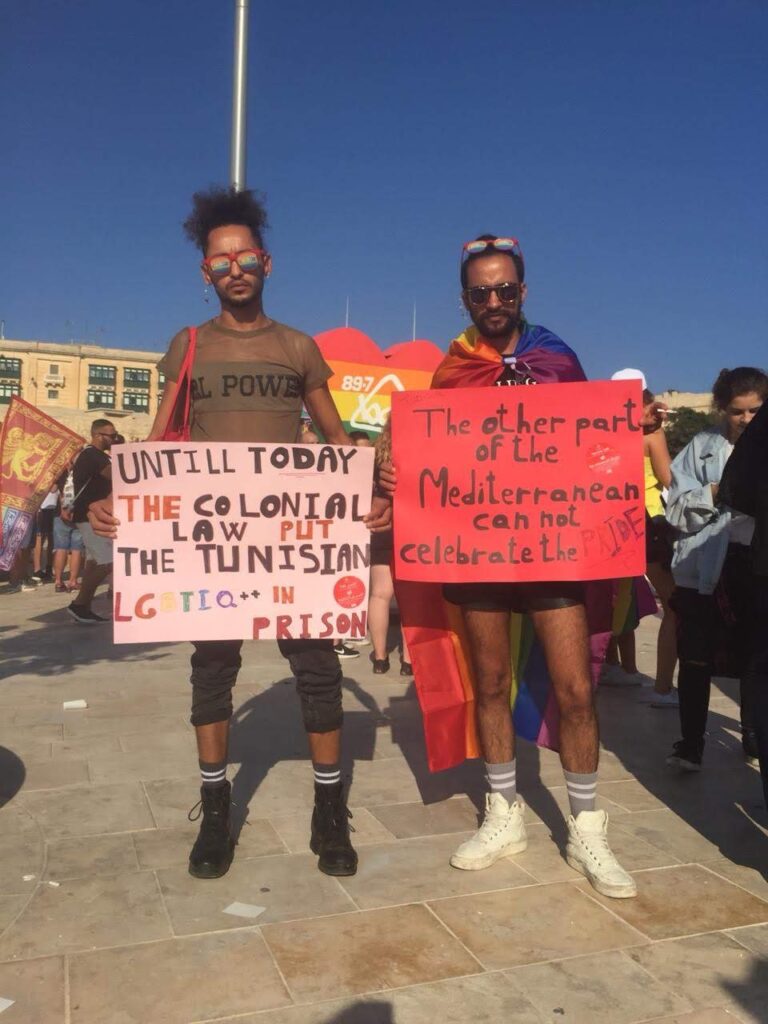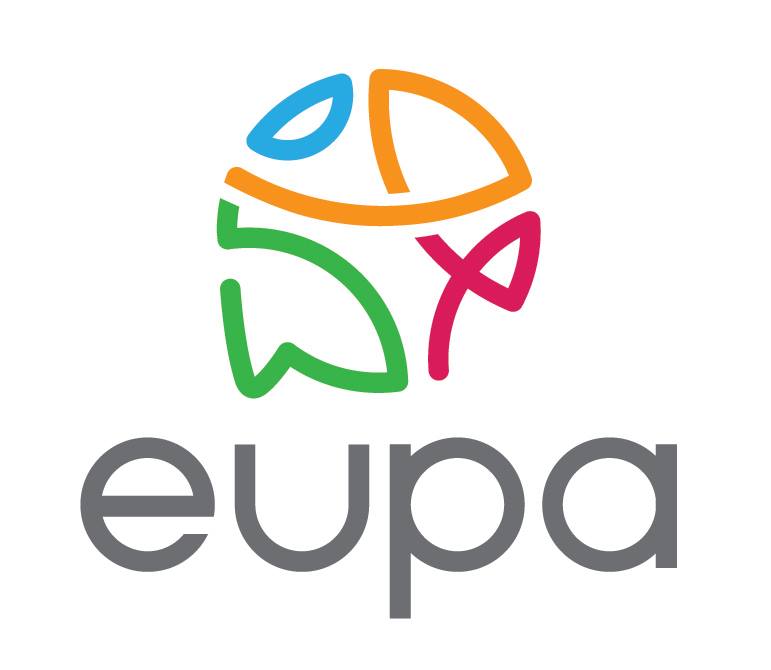Mohamad Ali ‘Dali’ Agrebi is a 25-year-old Tunisian theatre artist currently studying art at the University of Malta. His partner is 30-year-old professional contemporary dancer and choreographer – Chakib Zidi, also from Tunisia, who has performed in various countries across Europe and the Middle East. Chakib and Dali are both passionate advocates for LGBTQI+ and migrant rights on the island. This week we hear from them about their use of dance and interactive theatre to promote solidarity around these issues.
You are both clearly passionate advocates for LGBTQI+ rights. What challenges did you face as a result of your sexuality in Tunisia and how did these experiences influence your decision to migrate to Malta?
DALI: In Tunisia, LGBTQI+ community […] can be in jail for 3 years […] through a law in the penal code that condemns homosexuality […]. People find themselves in […] a society that doesn’t want to accept them […]. So, as an LGBTQ activist I was working on advocacy and I was working also with the community as a social worker dealing with traumas of people […]. I found myself arrested in Tunisia a few weeks before I came to Malta and it was an investigation all about an artwork that I was working on […]. They ended up searching in my messages, email, Facebook, and they took all my IT tools […]. I was really in danger and when I came here [Malta] it was the only way that I will be safe.
CHAKIB: […] I faced a lot of discrimination and also aggression and it was impossible to create a career […]. Then I went on my European tour and […] I went to Malta to work with the prestigious dance school in Malta […]. I was deciding to go back to Tunisia […] but unfortunately, an accident happened back home which is why I made a decision to stay here in Malta because I feared my life was in extreme danger.
How significant do you think these experiences have been in influencing your dance and your choreography?
DALI: All our artwork is based off our life experiences and what we see wrong in a way. Like, in a way, for me art is activism [….]. This is something that I work on to change rights, to have rights as a gay person in Tunisia, to work more on human rights, to work more on women rights, migrants’ rights…
When you now create a show what do you want the audience to take away from your performances?
DALI: Within our shows, for the audience it’s not about take away something but mostly it’s a question. It’s just…I want people to think differently, to not be brainwashed […] and educate themselves [….] It’s about also showing the good things of the future, the good things of accepting others.
Why do you think it is important to tackle serious issues such as LGBTQI+ and migrant rights through artistic performances such as your dances and interactive performances?
DALI: […] We want […]to give an idea to people that change is not good only for me – it is good for everyone.
CHAKIB: […] We are trying to give an educational aspect […] about acceptance, about love, about rights and how really, as refugees, […] what we are suffering from and the process, the long process that to be accepted into society isn’t easy. So, we are trying to put all these things into one performance.
How do you think dance can help challenge people’s notions of gender fluidity?
CHAKIB: […] despite growing up as a male in what we call, for example for me, a […] conservative society it gives you a different aspect of how you should act as a male and what are your duties […]. My challenge when I dance is to break up those stereotypes. I mean, it’s fine to be whatever you feel like and I try through my dances to give that sensibility through my body, through the movement and to express it in a way it gives different notions, different definitions of who I am […].
It [dance] gives […] the opportunity to discover your strength as men or as women or as trans or non-binary or whatever, and these experiences they allow you to be completely human […] because it teaches you how to not be ashamed of your body parts, do not be ashamed of who you are.
What are the biggest daily obstacles you face as an asylum seeker and a member of the LGBTQI+ community here in Malta?
DALI: […] I had my decision two weeks ago, so I am officially a refugee here in Malta and being an asylum seeker it’s so hard just because it takes too long […]. It’s a stigma […] just showing this paper – things change, even looks change, ways of how people address you and how they give you service will change […].
CHAKIB: Basically, being an asylum seeker in Malta is a nightmare […]. People don’t really care about who you are, and you are just a number on a file […]. You cannot even get married, I cannot even open a bank account […]. As an asylum seeker it means you are in the prison […] you don’t have freedom in so many different levels.
Image: Kris Micallef
Finally, what would you like people here in Malta to be more aware of when it comes to migration and the rights of LGBTQI+ asylum seekers such as yourself?
DALI: People […] are running away from war, they are coming to a safe place just so that they don’t die. It’s not about money, it’s not about the place that you are living in […], it’s about a human being that he’s saving himself, so this is the idea that we want that people have in mind […].
When it comes to LGBT asylum seekers […] it’s double rejection; rejection from your country, rejection from this country […]. People they are suffering from violence in the centres, they are suffering from psychological threats […]. So, for us […] this is what people have to understand in way and this is what we aim to work on and to change.
If you are interested in the work of MOAS and our partners, please follow us on social media, sign up to our newsletter and share our content. You can also reach out to us any time via [email protected]. If you want to support our operations, please give what you can at www.moas.eu/donate.




